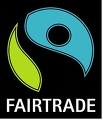Theologian Walter Rauschenbusch once wrote that it is “the will and power of God to redeem the permanent

institutions of human society from their inherited guilt of oppression and extortion.”
Have you ever wondered if free market global capitalism might be an institution of human society which needs to experience redemption? Did you know free market global capitalism contributes to oppression and extortion even as it attempts to benefit others? Have you thought of how it might rob each of us of the freedom and imagination which it claims to promise? Do you wonder if God’s word might have something to say about it?
This month, the Ethics Centre brings you some resources that consider Fair Trade as an alternative to free trade. We’ve been wondering if a Christian has a responsibility to make different choices in the marketplace and if those better choices might have positive consequences for our global neighbours. If the 80/20 rule is a reality, if 20% of the earth’s population own 80% of the wealth, then we in Canada are certainly part of that wealthy minority. If Jesus really meant that we should care for “the least of these” giving them food and water and clothing when they are in need, then he is talking about the other 80% of the world’s population who subsist on 20% of the world’s wealth and live in underdeveloped countries.
These days it’s hard to deny that our economic system is a broken human institution: fallen and in need of redemption. On September 16, 2008, the Western penchant for things we can’t afford caught up with the market, amounting to more debt than could be repaid, and loans that could no longer be insured against default. The American economy reeled. Banks closed. Around the world, governments scrambled to pick up the pieces.
It’s not hard to look at this economic crisis and see a spiritual crisis as well. Greed, pride, the desire to compete, to be better, more powerful or wealthier than someone else, these are the things that power our economy. They motivate us to buy stuff. To buy more stuff at a cheaper price. To think only of the consumer side of the equation. Have you ever considered that the word “consume” could have a negative connotation: it means to eat up, use up, destroy or ruin. If you and I are “consumers,” what is that we are destroying? Do we only consume inanimate objects with our spending, or do we also destroy God’s living earth? God’s creatures? And even our fellow human beings? Can we even be comfortable being called a ‘consumer’ by companies competing to get our business?
Free market capitalism, spread around the world by globalization, fueled by this destructive force called consumption, has made slaves of our brothers and sisters, both here in North America - in the halls of commerce, on streetscapes lined with advertisements - and in places we can’t so easily see: sweatshops in South East Asia or cash-crop farms in Central and South America, among others.
We invite you to consider the following questions along with us, to search the Word and find out whether or not Christians should care about Fair Trade.
• Does God intend to redeem this human institution; to make it new, or whole, or good again?
• Should Christians be God’s agents of change in the marketplace?
Further resources:
Worship Aids:
Fair Trade - Worship Aids
World Fair Trade Organisation -
http://www.ifat.org/
Trans Fair Canada -
http://transfair.ca